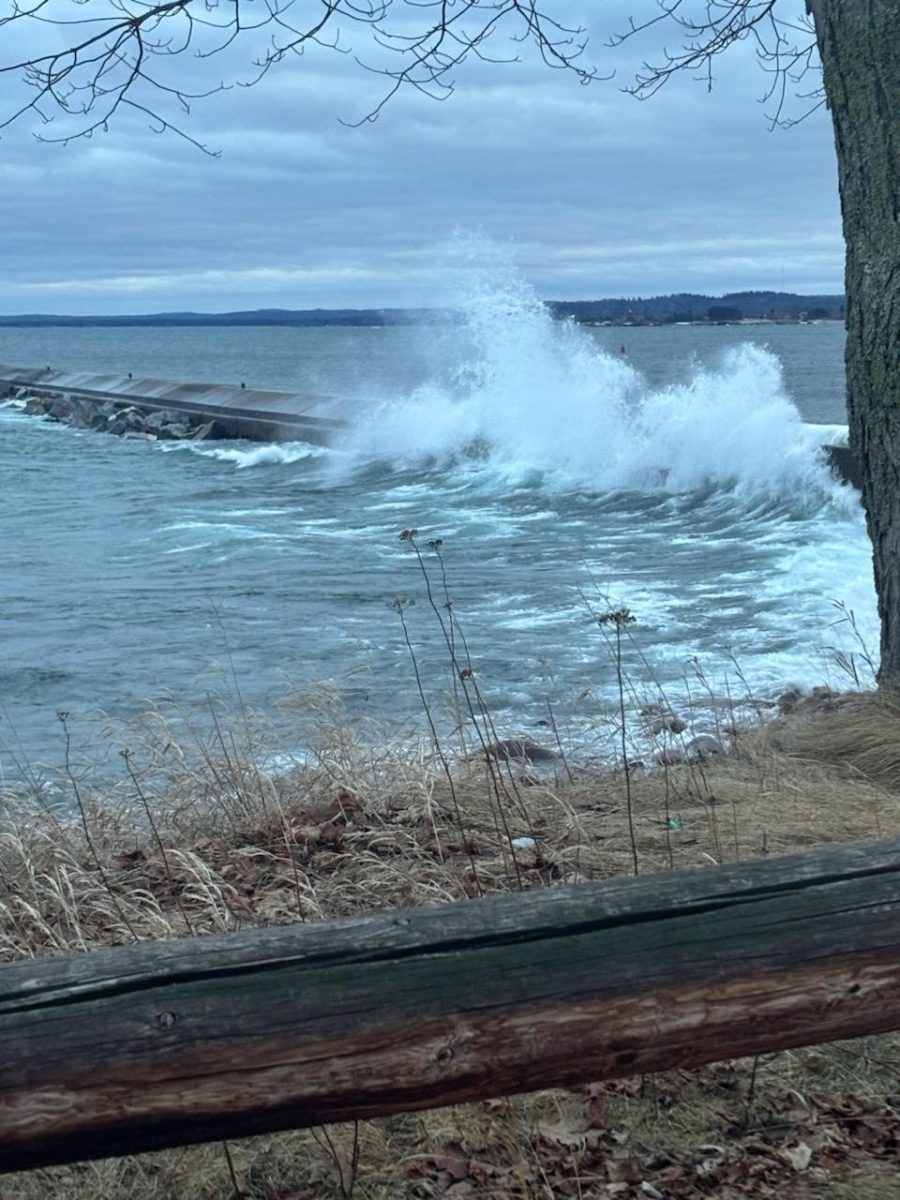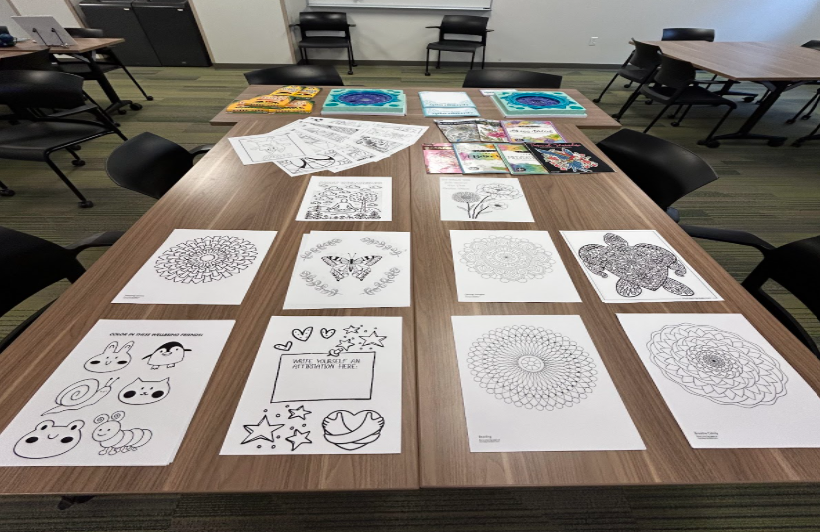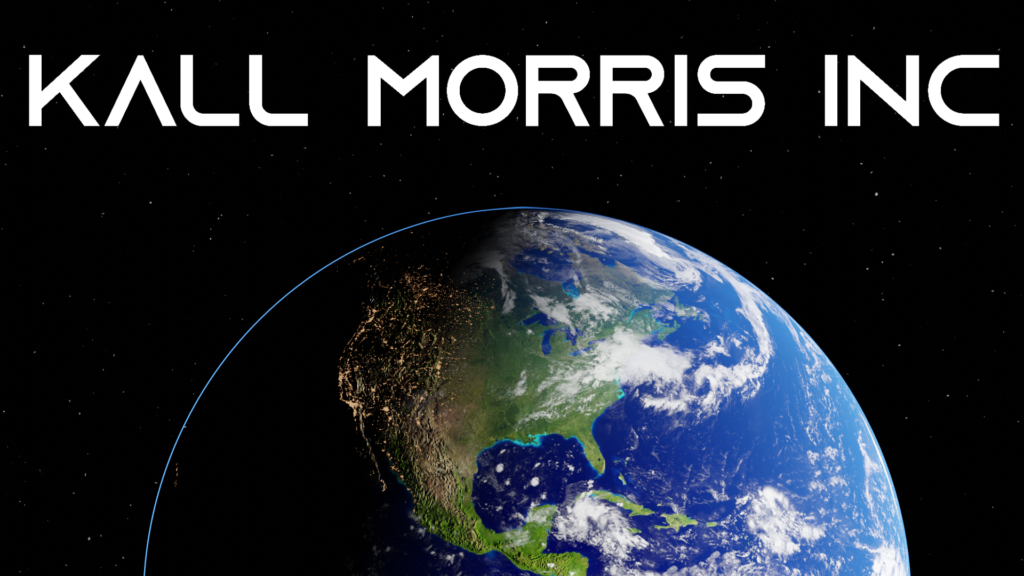Kall Morris Inc. is a company formed to clean up and deal with the growing problem of debris in outer space. Operating out of Marquette, MI, the company was formed by three NMU alumni.
Kall Morris Inc. is headed by founders Troy Morris, Austin Morris and Adam Kall, who united under their shared passion for the opportunities of working with outer space. Troy Morris, Director of Operations, graduated from NMU with a major in psychology behavioral analysis. Austin Morris, Director of Engineering and brother of Troy, graduated from NMU with a mechanical engineering technology degree and computer numerical control certificate. Adam Kall is the Director of Technology and graduated from NMU with math and computer science majors.
The three directors were heavily involved with their studies and the community during their time at Northern and remained close after graduation. Though each of them moved on to pursue careers in metropolitan areas, it was their shared passion about working for the betterment of space that united them again with the idea that would later become KM Inc. While Kall was working as a residence management analyst for an airline in New York, he would frequently use his free flight benefits to go back and visit the U.P. It was through this that Kall found out about the Michigan Launch Initiative in the Upper Peninsula.
“I thought, let’s just play the what-if game and say ‘hey, crazy thought, if there was a launch site in Marquette, what could we do with that? What could we put on a rocket?’ Not build the rockets ourselves, enough people are doing that and that’s crazy expensive, but what could we actually put on the thing?” said Kall. “That’s where the conversation started. Between the three of us, we did actually have the skills to take a shot at creating a satellite company. More importantly, Marquette and the U.P. and Northern provided an environment to do it where we wanted to be.”
Space debris cleanup was not the first idea for the satellite company. Through researching the growing problem of potential collisions from debris towards satellites, they realized that this was an issue that they could do something about before it could become a larger threat.
On Sept. 22 of this year, the International Space Station had to use thrusters and change course to avoid collision with space debris. The crew members on board were directed into the safe haven section of the station as part of the safe-haven procedure out of an abundance of caution, according to NASA. By taking this action, the crew was guaranteed safety and the station escaped the predicted path of the debris. Though the crew was not in any danger in this instance, says NASA, this is not the first time debris has come uncomfortably close to the ISS.
“That’s a pretty big event,” said Troy Morris. “That’s the third time that’s happened this year. It’s something that for one of the most expensive things humanity has built, one of our shining pieces of achievement, it is at risk from a piece of debris left from a mission decades ago.”
KM Inc.’s plan to clean up the space debris is through the use of satellites. The satellites will be built using many parts sourced from Michigan suppliers. Orbion Space Technology in Houghton is a supplier for thrusters that KM Inc. is intending to use, as well as Atlas Space Communications, located in Traverse City, who will manage ground-to-space communications. The developing industry in Michigan allows the company to have these helpful local connections, said Austin Morris.
Using these parts, KM Inc.’s satellites will fly into orbit, match the speed and rotation of the space debris and grab onto the debris to remove it from any potentially hazardous paths. As for what they will do with the debris from there? That comes down to the governing bodies who oversee space, said Austin Morris.
Space is largely managed by groups such as the FAA, NASA and other international agreements. KM Inc.’s current plan once their satellites have made contact with the debris is to put it back in the atmosphere where it will be dropped out of orbit, causing it to burn up in the atmosphere upon re-entry into nothing, said Austin Morris. Another option is to put it up into a higher orbit where it’s location will be known and recorded as a designated spot that nobody needs to use. The debris will stay up in its designated graveyard orbit, said Austin Morris.
“The exciting part about space debris is that it’s not a catastrophe yet,” said Kall. “It’s something that mathematically and through study and prediction and results, we know it is going to be if nothing is done. We know the trend, we know the prediction, [and] we know what is going to happen if nothing gets done in ten, twenty years. But right now we have the technology and we have the ability to solve the problem if we go out and do it. So that entices us to say maybe, just maybe, there can be one less crisis for our kids to grow up with.”
The experience and connections at NMU that each of the directors got from their time living, studying and working up here is what allowed them the opportunity to make Kall Morris Inc. into what it is today and its continued growth. Their time at NMU has given them connections to people and businesses that KM Inc. continues to work and speak with in their efforts to clean up space as well as opening them up to new and diverse ideas and ways of thinking.
“That exchange of ideas, of passions, of what you guys actually care about, that started at NMU for me. It was through the programs, through different students, through outreach to the community, Make a Difference Day, through these sometimes awkward and forced conversations that you ask ‘why are we doing this?’ It is to grow. To get better. That’s what we’ve been working to do. That’s why we reach out to our competitors and colleagues,” said Troy Morris.
KM Inc. is committed to its objective of “keeping space clear for all” through its local connections and the combined knowledge, experience and efforts of the three founders and directors. The company was incorporated in Nov. 2019 and will continue its development of satellites capable of clearing space debris.
“Doing cool things; doing new things is not easy. It’s very difficult but it’s worth doing and it’s worth that effort. If you’re going to fail, fail fast. Fail fast, learn the lesson, move on and keep going and eventually you’ll get to success. I’m saying those words hoping I’m right because we still have a long road to get there but that’s what I’ve picked up from my experience and that’s what I’d urge others to do. The hardest step is always the first. You just have to try it,” said Austin Morris
Kall Morris Inc. is currently expanding and has encouraged students and alumni who are interested in the pursuit of a clean orbit to apply. The application can be found at this link.
“Make friends at Northern because you never know, you might make a [satellite] company with them,” said Kall.

































